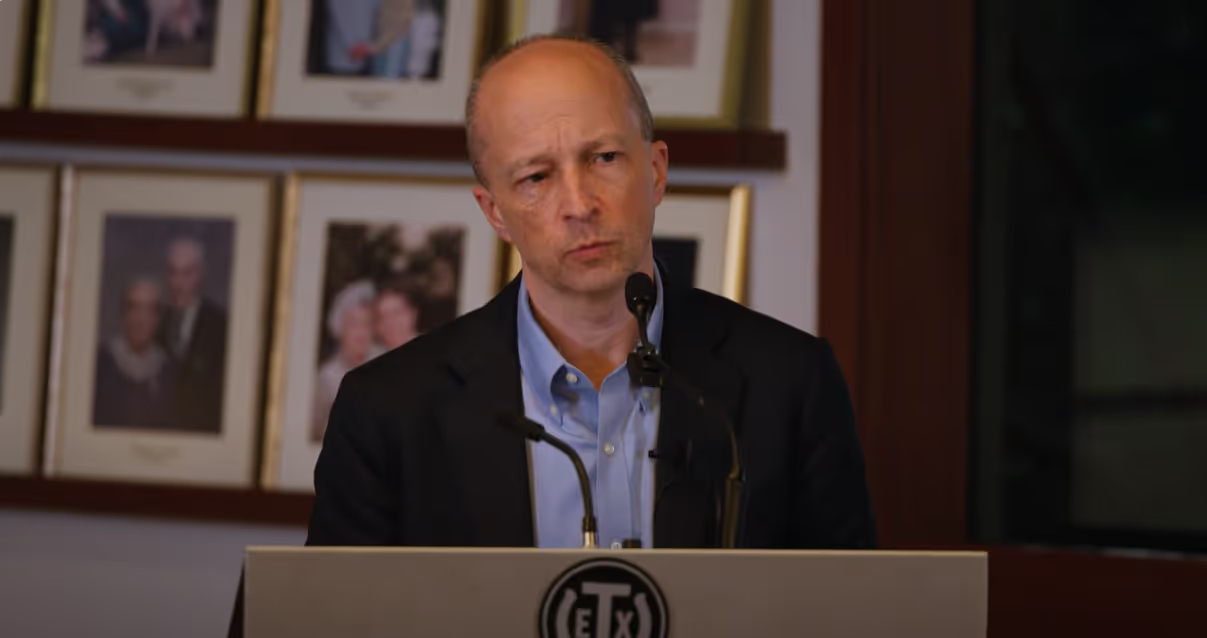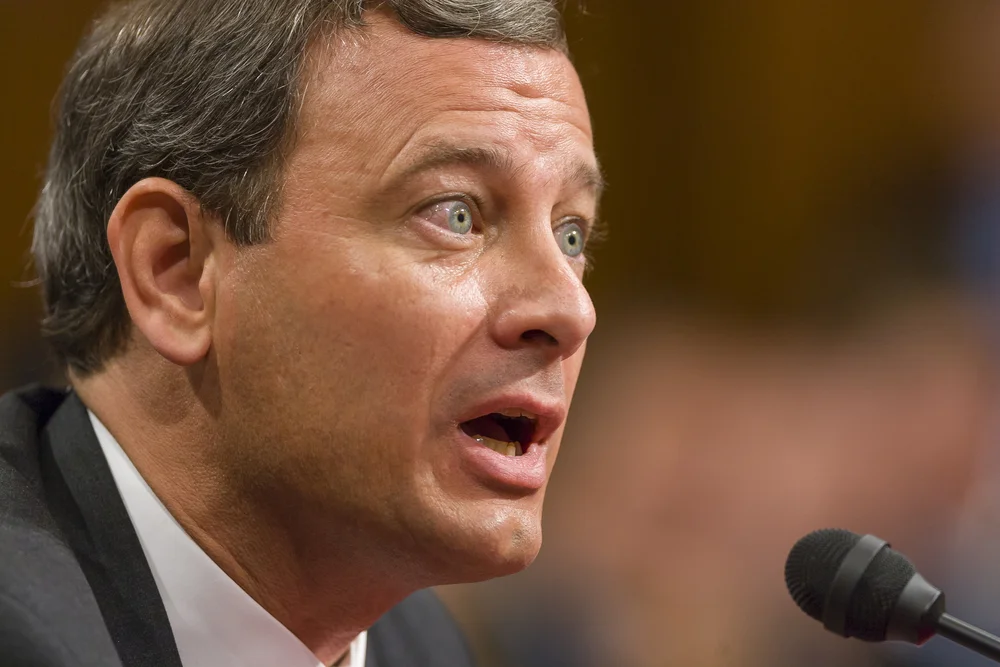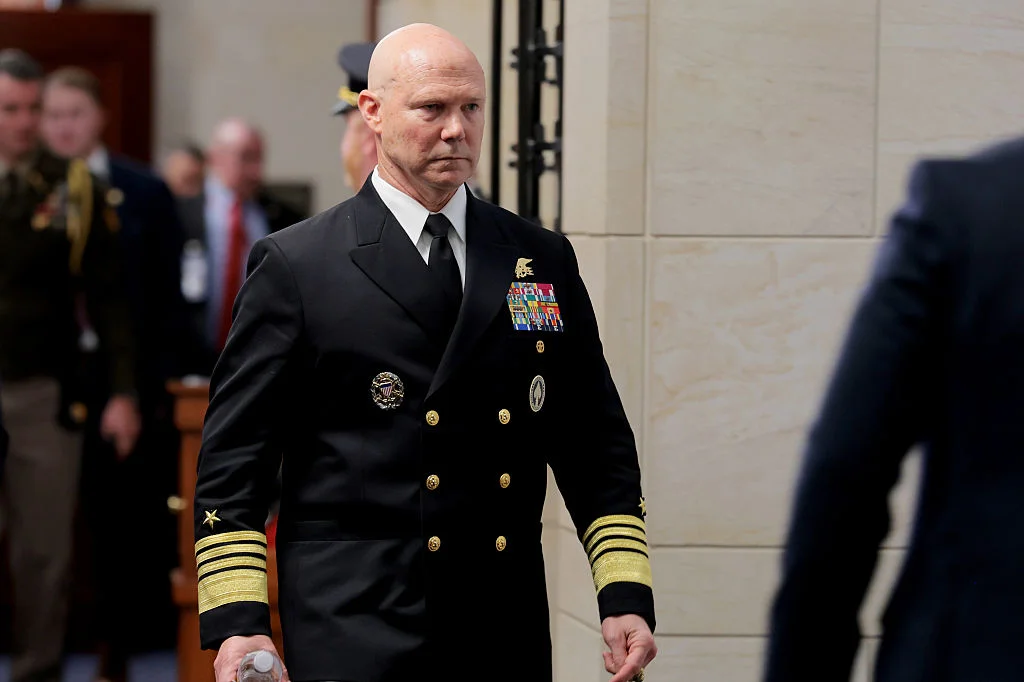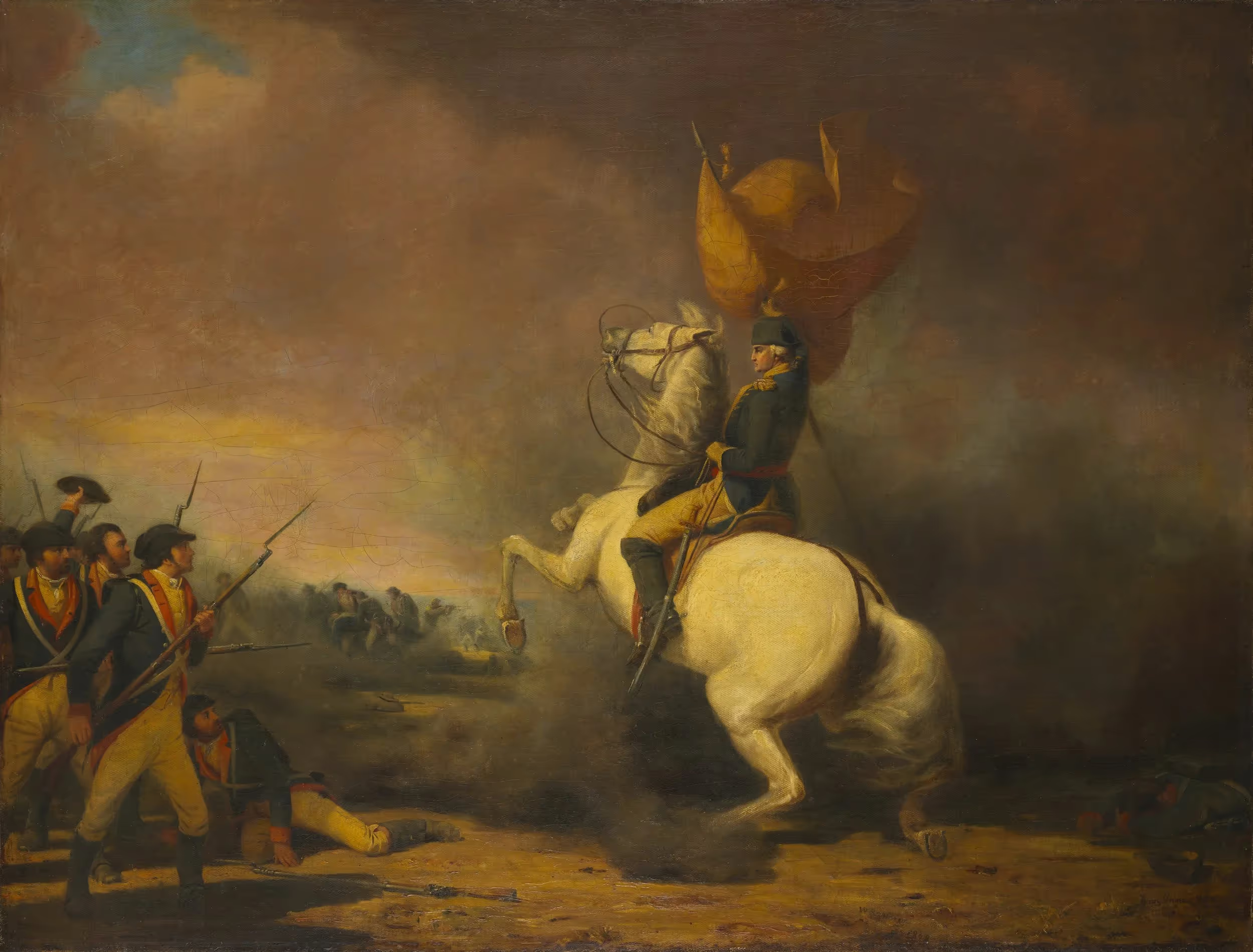
Character and the American Presidency: A View from the Founding
Washington’s virtues were viewed as so extraordinary and his decision-making about practical affairs so solid that his very example proved the need to fit the new and powerful executive office to more ordinary men.
A year after the Constitutional Convention of 1787 had constructed a powerful and independent national executive, former delegate Pierce Butler reflected that the new president’s powers were “so great” because his colleagues had “cast their eyes towards General Washington [the Convention’s presiding officer] as President; and shaped their Ideas of the Powers to be given to a President, by their opinions of his Virtue.” Washington’s extraordinary virtues— personal integrity, selfless devotion to the public good, and unswerving commitment to republican principles—were recognized by all, both inside Philadelphia’s Independence Hall and among a grateful citizenry throughout the thirteen states. Indeed, it is virtually impossible to overstate the esteem with which Americans held the Virginian who had successfully led the Continental Army to victory over the British. This is best illustrated by remarks by the Anti-Federalist “An Old Whig” during the debate over the ratification of the Constitution: “[I]t is perhaps a chance of one hundred millions to one that the next age will not furnish an example of so disinterested a use of great power.”
This starkly clarifies the issue that faced the fifty men who wrote the new Constitution: while Washington would be a safe and effective wielder of the new executive powers, what would happen after he left the scene? Paradoxically, Washington exemplified the kind of personal character that the framers hoped to see in future presidents while also serving, one might say, as a warning to his countrymen that their new governing institutions had better not depend on leaders of such exemplary character. To put it simply, Washington’s virtues were viewed as so extraordinary and his decision-making about practical affairs so solid (“no judgment was ever sounder,” Thomas Jefferson would later write) that his very example proved the need to fit the new and powerful executive office to more ordinary men. Such men, for example, might, if left unchecked, appoint unqualified relatives or friends to high office; succumb to a foreign bribe to enter a treaty that ill-served American interests; or commit treason, bribery, or other high crimes while in office. Hence, the wisdom of requiring Senate approval for appointments and treaties and of enabling Congress to remove a dangerous president from office.
Indeed, it is remarkable how frank the delegates to the Constitutional Convention were in their discussions of the executive. Those concerned about creating too strong an office were not at all reluctant to speak of ignoble cabals and monarchic designs; while those who favored a powerful and energetic executive were open about the need to tie the passions and interests of the president to his duties. Rather than looking to Washington as the kind of man they expected typically to occupy the office, the delegates may have been thinking more of someone like New York’s governor, George Clinton. By the summer of 1787, Clinton was serving in his eleventh consecutive year as governor, and no governor had become as powerful a political figure within his state. Though Clinton was not without talent, few would rank him with fellow New Yorkers Alexander Hamilton or John Jay, never mind with the likes of George Washington. Operating under a constitution that provided for popular election of the state’s chief executive for renewable three-year terms, and vested the office with substantial independent powers, Clinton proved to be an effective and responsible governor. The architects of the presidency hoped that their electoral college system would raise to the nation’s highest office men, in Alexander Hamilton’s words, “pre-eminent for ability and virtue” as demonstrated by exemplary public service. Leaders of the caliber of Washington were, of course, desired; but men like Clinton were more likely to fill the office, especially after the passing of the founding generation.
In his extensive treatment of the presidency in The Federalist, Hamilton displayed the unabashed realism about human nature for which the framers are so well known. He was “disposed to view human nature as it is, without either flattering its virtues or exaggerating its vices.” And among those vices were avarice and ambition, and especially ambition as merely the love of honor or power. Because the Constitution allowed a president to succeed himself if the people believed he had done a good job, a man chiefly interested in the emoluments of the office might refrain from corrupt conduct to earn reelection: “his avarice might be a guard upon his avarice.” Similarly, a man who sought the nation’s highest office only for the honor and power that came with it would be encouraged by the constitutional design to show the people that he was working for their well-being so that he could prolong his stay in office. More broadly, the framers expected that by giving the chief executive a four-year term, indefinite re-eligibility, and substantial powers, the chief executive would have a personal interest in “doing his duty,” thereby promoting the larger public good.
Yet, even in his unvarnished account of presidential character, Hamilton reminds his readers of the genuine character of the true statesman. Here he is defending the constitutional provision that prohibits Congress from altering the president’s salary for the term for which he was elected. The experience of the state governors had demonstrated that if the legislature had full control over the chief executive’s salary, it “could render him as obsequious to their will as they might think proper to make him,” for generally “a power over a man's support is a power over his will.” But not in every case: “There are men who could neither be distressed nor won into a sacrifice of their duty; but this stern virtue is the growth of few soils.”
By and large, in their institutional design, the framers were successful in directing the interests and ambitions of lesser lights than Washington toward the energetic and forward-leaning exercise of presidential power. Nonetheless, as the country has become more democratic and the system of selecting presidential candidates more populist, presidents have increasingly defined their ambitions more by personal popularity and the accomplishment of the so-called mandates they claim than by the responsible exercise of their constitutional duties.
Joseph M. Bessette is the Alice Tweed Tuohy Professor of Government and Ethics Emeritus at Claremont McKenna College.
Gary J. Schmitt is a senior fellow in the Social, Cultural, and Constitutional Studies program at the American Enterprise Institute.
Constitutionalism

Amicus Brief: Hon. William P. Barr and Hon. Michael B. Mukasey in Support of Petitioners
Former AGs Barr and Mukasey Cite Civitas in a SCOTUS Brief

Rational Judicial Review: Constitutions as Power-sharing Agreements, Secession, and the Problem of Dred Scott
Judicial review and originalism serve as valuable commitment mechanisms to enforce future compliance with a political bargain.

Supreme Court showdown exposes shaky case against birthright citizenship
Supreme Court will hear challenges to Trump's order ending birthright citizenship, testing the 14th Amendment's guarantee for babies born in America.
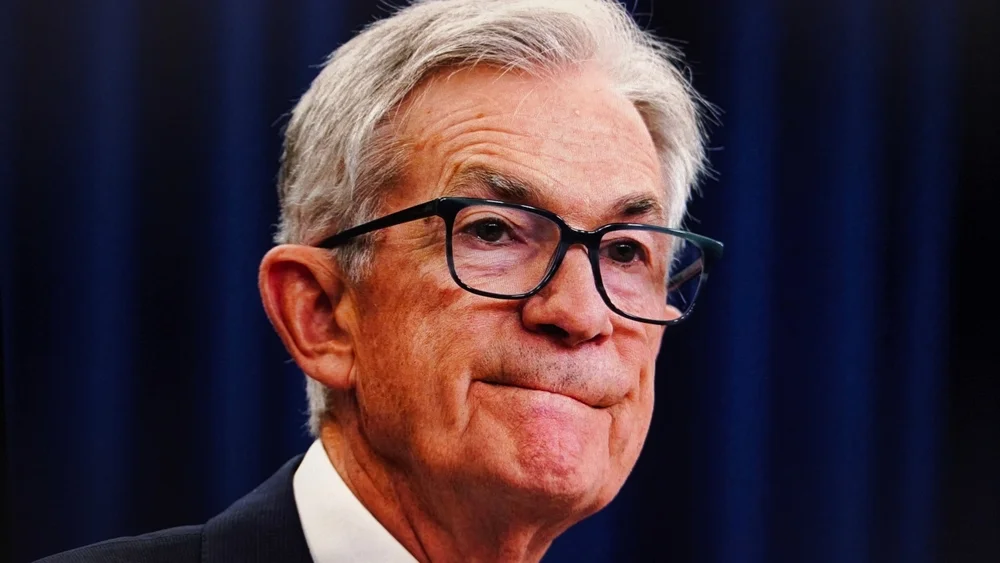
Kneecapping Powell, Undermining the Rule of Law
Donald Trump and conservatives know the perils of lawfare all too well. Why subject Jerome Powell to the same thing?
%20(1).webp)
Limiting the Federal Government
Failure to consider the sponsors’ representations of the Constitution’s meaning seriously impairs the quality of interpretation.


.avif)







.avif)
.avif)

